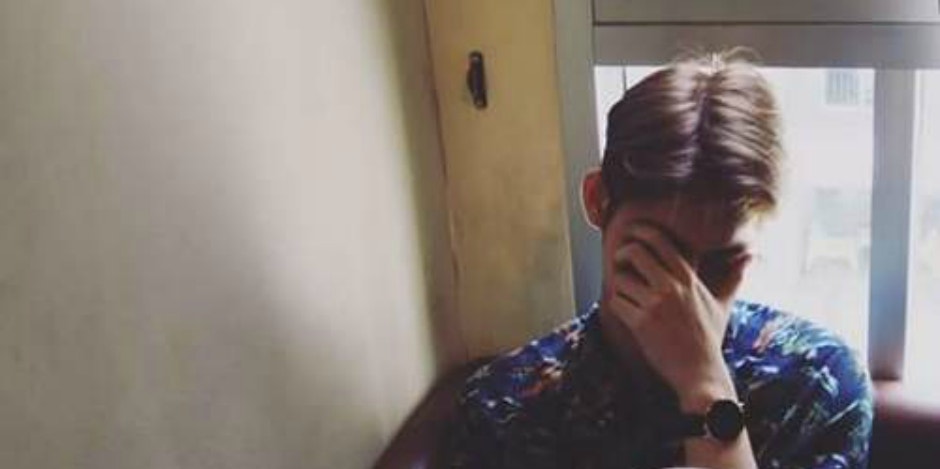How Men Deal With Emotional Pain (And How They Can Handle Their Feelings Better)
As written by a guy who's been there.
 weheartit
weheartit I've gotta tell ya, I've been feeling a lot of emotional pain lately, and it's all been self-inflicted.
I think the word pain gets a bad rap from most of us who have a high tolerance for it... especially those of us who have learned to tolerate emotional pain.
By nature, I've been gifted with a high tolerance to pain. But like most things, my gift can also be my cross to bear. The gift comes when I'm able to sit with this pain. The cross comes when I choose to ignore it.
We men seem to define pain as if it starts at the point where we can no longer tolerate it — rather than the point where it actually originates.
In my opinion, this is because of the way men are conditioned in modern western culture. As young boys, we were taught to "suck it up" and rub some dirt on it. So we hold these feelings close, stuff them down inside and keep moving. It's not until we get completely overwhelmed with our emotionals that we begin to see it as real pain.
My favorite mentor is the late great Dr. Wayne Dyer. In his talk of the Three Stages of Spiritual Awakening — which can be read on the Heal Your Life website — he describes how we can move from rock bottom to a place where we can use our thoughts for the divine purpose they were intended.
The crazy thing is, most of us do this all the time on a physical level, but as we move toward the deeper mental, emotional and spiritual parts of us, we seem to abandon the wisdom we've already learned. We spend so much of our time in the shallow, physical end that we're disconnected from the rest of that vast ocean that makes us the awesome "self" we are.
Now think about how you deal with physical pain, for example.
In the physical world, we can recognize pain as even the slightest itch from a mosquito bite. First, we recognize it and relieve it with a scratch. Next time we see the mosquito on us, we swat it in real time because we know the pain that will soon come it's bite. Finally, we're able to anticipate that pain with our thoughts and apply some repellent so the little monsters won't even land on us.
But we don't stop going out into the woods because that's our nature. Instead, we learn from the experience, deal with it, and move on.
It works the same way with emotional pain.
Most times, emotional pain first shows up as a small itch, but we've been trained to ignore it because that's what big, strong men do. We become so adept at ignoring it that we're no longer able to even recognize our pain until we're at the point of being eaten alive by it. Only then do we say, "Wow, that freaking hurts! I don't want any more of that."
We let the pain become so great that we decide the risk is no longer worth the reward. Rather than opening ourselves up to the pain and addressing it, we decide to tame the wild man inside of us and become some mundane version of ourselves. We even convince ourselves that mediocrity is our destiny, as long as it doesn't involve revisiting that excruciating storm of pain that we allowed to fester within us.
As a man in this human body, pain has been a necessary catalyst to my discovering grace — and perhaps it could be for you, too.
What wasn't necessary were the many times I allowed my emotional pain to get so intense that I no longer wanted to embrace it as the gift that it is.
There are many ways we can use mindfulness practices to develop our inner eyes and ears so we can tune into our emotional pain long before it flips us on our heads. It all begins with shutting out the noise in our daily lives and rekindling that relationship with our own hearts.
I'm talking meditation and prayer, baby! If you're hung up on how to do that, find a local teacher to help you with it.
Then, when you're ready to rock and take some action toward becoming the man you were destined to be, I'd be honored to serve you as your partner and guide.
Only by the grace of God am I no longer the man I used to be. Nor am I the man I'm destined to become. May I learn to recognize and embrace the pain from a small itch a little better each day so that my growth may continue with a few less speed bumps — and may you do the same!
Greg Boudle is a transformational coach for the recovering man. His articles have appeared on The Good Men Project, Psych Central, and other sites. He's also a published author and professional speaker. Find out more about Greg at LifeBeyondClean.com or check him out on Facebook.

